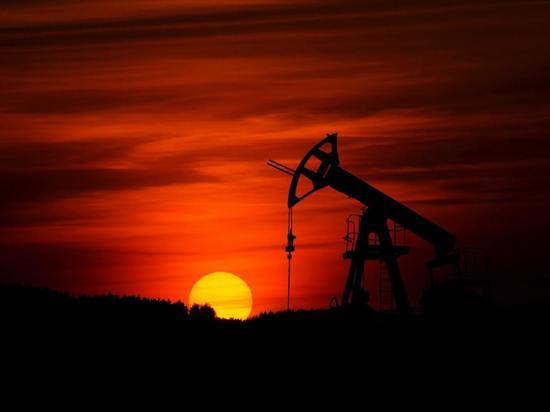The issue of the “ceiling” of prices for Russian oil split Europe
[ad_1]

After the announcement by Russian President Vladimir Putin on September 21 of the introduction of partial mobilization, the European Union decided in response to announce a new package of sanctions being prepared. It is assumed that the issue of establishing a price ceiling for Russian oil will occupy a central place.
European Commission President Ursula von der Leyen has already said that action must be taken quickly. However, foreign media frantically talked about the fact that hopes for the smooth adoption of new measures may encounter a number of problems and resistance from the member states of the European Union.
Member states of the European Union are seeking to conclude a political agreement within just a few weeks that would impose an upper limit on Russian oil, writes Bloomberg. Especially after Vladimir Putin announced partial mobilization and referendums were scheduled in the LDNR, Zaporozhye and Kherson regions. The European Commission will start discussing a new package of sanctions from September 23. Officials suggest the decision will align the EU with US efforts to prevent oil prices from skyrocketing and hurt Moscow’s revenues.
But despite the new efforts of the Commission, the plan faces many obstacles. Bloomberg interlocutors note that a positive result is not guaranteed. Sanctions decisions require unanimity, and they are especially difficult in the current situation, since each EU member has its own energy needs. The main discussions will begin this weekend, where, in addition to oil, the issue of listing measures on individuals and sectors, such as technology and luxury goods, could be raised.
The Financial Times noted that Lithuania, Latvia, Estonia and Poland are more radical in this regard. This group of European states is actively insisting that even more Russian banks lose access to SWIFT systems, and are also advocating a ban on diamond imports.
Many details remain to be worked out, including setting the price cap itself. It also remains unclear how such a restriction will be implemented. But in any case, the European Commission is betting on urgency, since the West needs to accept a price ceiling before the measures come into force. This will happen on December 5th.
EU economic chief Paolo Gentiloni, speaking after the G7 reached a political agreement on price caps earlier this month, said the commission will work to garner support from all of the bloc’s countries. Representatives of national governments in Brussels will seek to reach a preliminary agreement on a price cap ahead of an informal meeting of EU leaders in Prague on 6 October.
And here arises the main fear of the politicians of the Union. How will Hungary react? Moreover, it becomes scary for the European Commission to think about the future of its plans when the precedents associated with this country are recalled. In short, she always resisted. Among other things, Hungarian Foreign Minister Péter Szijjarto (the only EU representative to have held talks with his Russian counterpart Sergey Lavrov on the sidelines of the UN General Assembly in New York) said on Friday that Russia remains an indispensable source of energy. “If Russian supplies of natural gas and crude oil stop, the entire Hungarian economy could stop working. Therefore, it is very important for us to have predictable supplies from Gazprom,” Szijjártó said on the social network.
In parallel with these events, Hungarian Prime Minister Viktor Orban launched a campaign at home to criticize any energy sanctions within the entire bloc. In June, there was already a case when the state postponed the adoption of a package of EU sanctions against crude oil. Everything was signed only after Budapest was guaranteed exemptions that still allowed Hungary access to pipeline oil. But will there be at least some guarantees now?
Foreign publications vying with each other wrote that Russia does not suffer much from the measures being introduced, but Europe is starting to boil more and more every day. Public disappointment is already showing the United Kingdom, Germany, Austria and Italy. In Prague, 70,000 people took to the streets in early September to demonstrate “the Czech Republic first” against rising energy prices. Accordingly, European solidarity is also weakening. It is emphasized that this is already very bad for Brussels. After all, in addition to Hungary, Germany also coldly treats sanctions measures. Yes, and Italian businessmen recently staged a protest against bills on the electric power industry, now blaming Brussels, not Moscow. Foreign experts even admit that Europe could face a serious test of political unity if instability continues to grow.
“There could potentially be a situation where citizens become really dissatisfied and start blaming governments for this. Perhaps these governments will decide to go their own way and look after their own interests. Maintaining EU solidarity will not be easy,” Ben Cahill, an expert, told Foreign Policy.
EU countries that have received oil incentives will want to make sure they are not cancelled. At the same time, countries that import “black gold” by sea may try to link the price cap to the currently envisaged total embargo on maritime supplies. And in this situation, the shipping countries (Greece, Cyprus and Malta) can also try to protect their industries from new measures.
Based on such a picture, it is almost impossible to imagine that everyone would unanimously listen to Ursula von der Leyen and “show discipline and attention” in the issue under discussion.
[ad_2]
Source link






